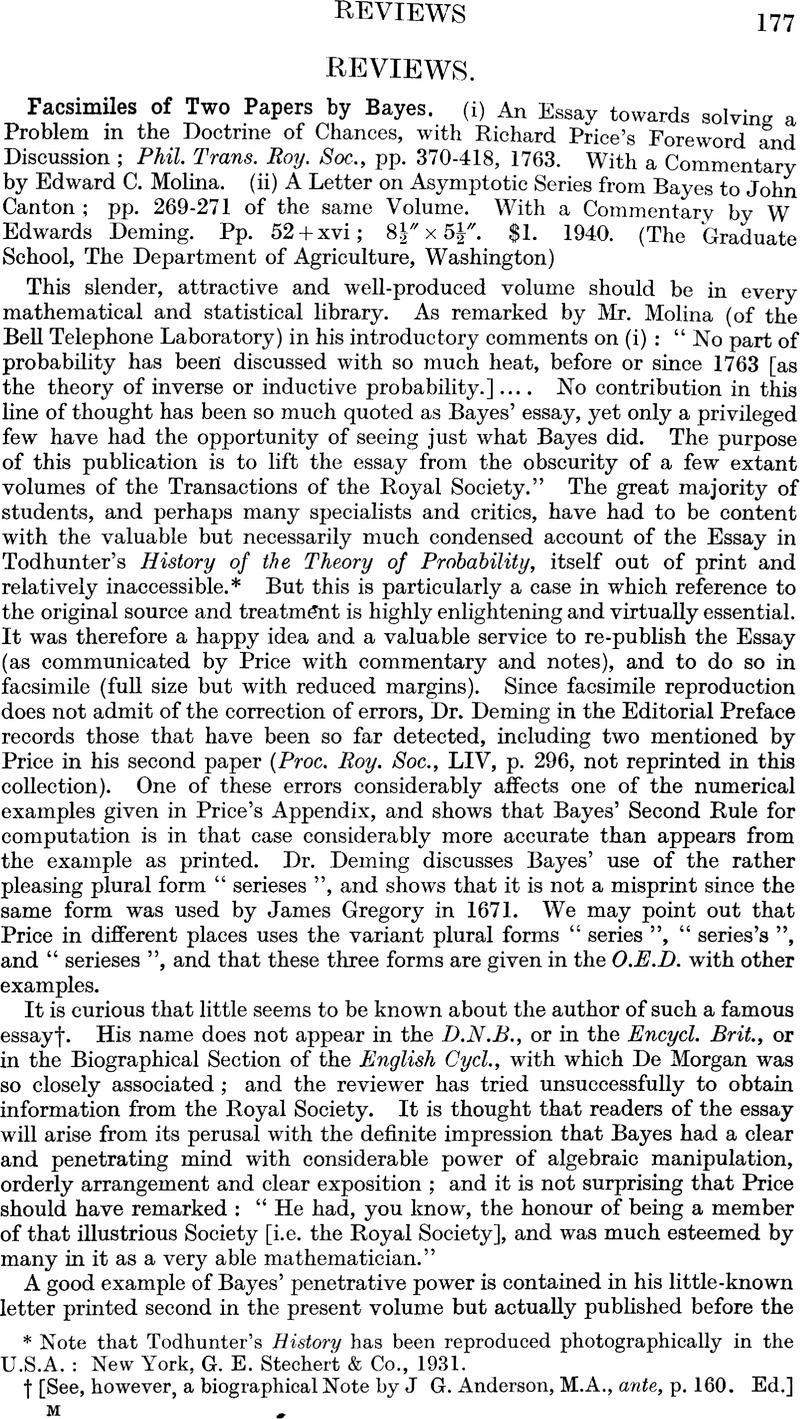No CrossRef data available.
Article contents
Facsimiles of Two Papers by Bayes, (i) An Essay towards solving a Problem in the Doctrine of Chances, with Richard Price’s Foreword and Discussion; Phil. Trans. Roy. Soc., pp. 370–418, 1763. With a Commentary by Edward C. Molina, (ii) A Letter on Asymptotic Series from Bayes to John Canton; pp. 269-271 of the same Volume. With a Commentary by W Edwards Deming. Pp. 52 +xvi; 8½″ × 5½″. $1. 1940. (The Graduate School, The Department of Agriculture, Washington)
Review products
Published online by Cambridge University Press: 03 November 2016
Abstract

Information
- Type
- Reviews
- Information
- Copyright
- Copyright © Mathematical Association 1941
References
page no 177 note * Note that Todhunter’s History has been reproduced photographically in the U.S.A.: New York, G. E. Stechert & Co., 1931.
page no 177 note † [See, however, a biographical Note by J G. Anderson, M.A., ante, p. 160. Ed.]
page no 179 note * De Morgan, who was no bad judge, was much more appreciative. In Notes and Queries, 2nd Ser., Vol. IX (7 Jan. 1860) he said: “Bayes shows a very superior mathematical power: and Laplace, who makes but slight mention of him, is very much indebted to him. Accordingly, Bayes is one of the chief leaders in the mathematical theory of probabilities. What he did was of small extent, judged by paper and print, but of fundamental importance and wide consequence: he is of the calibre of De Moivre and Laplace in his power over the subject.”

